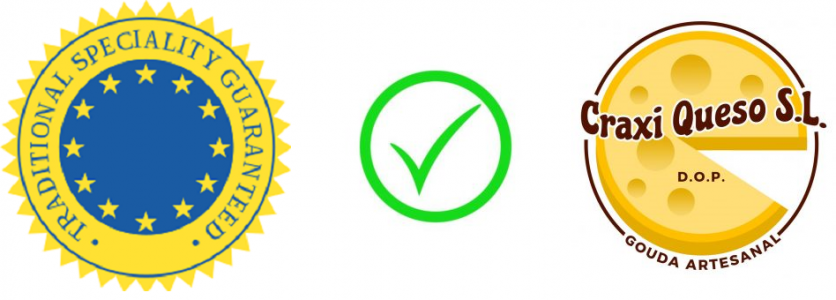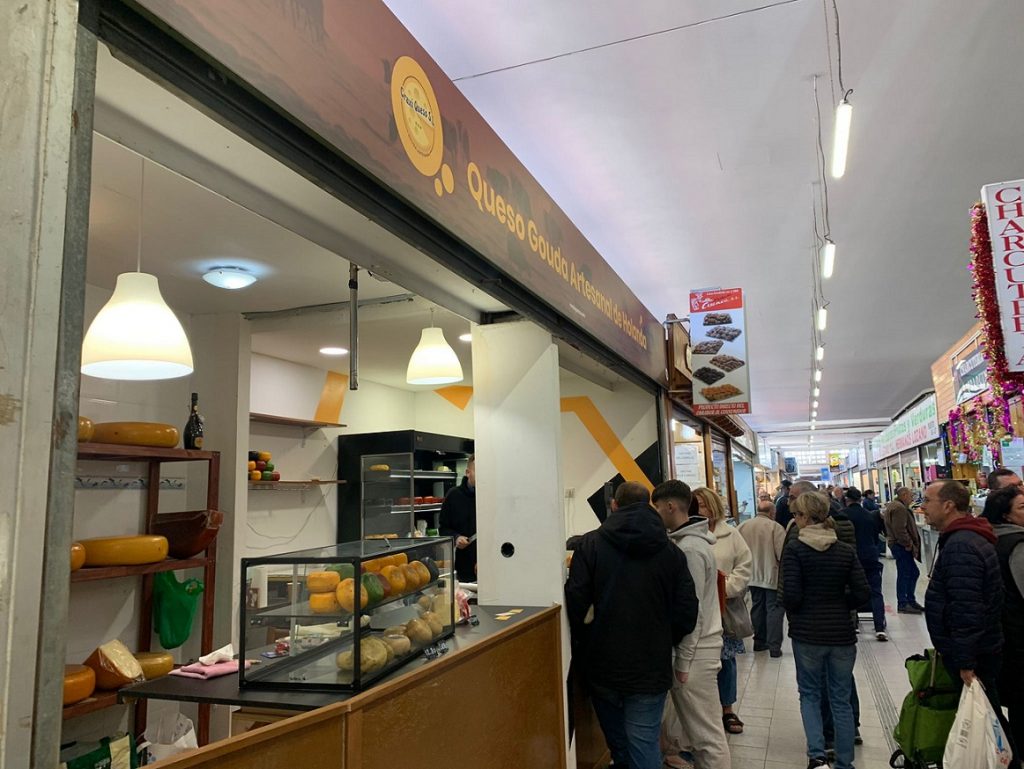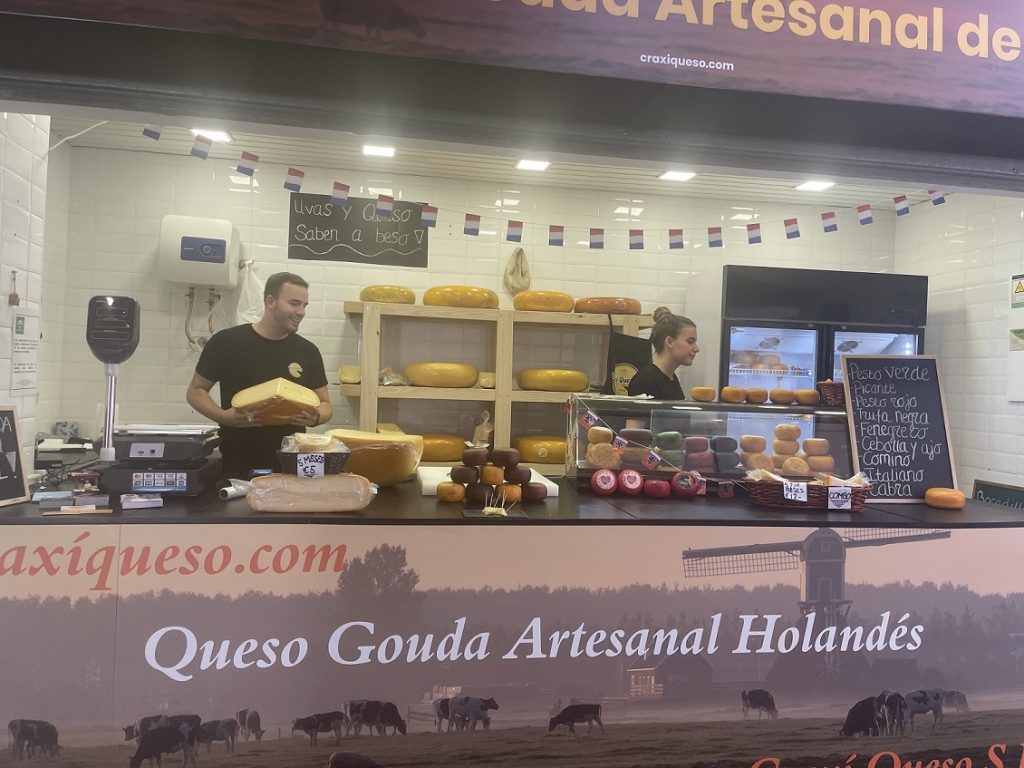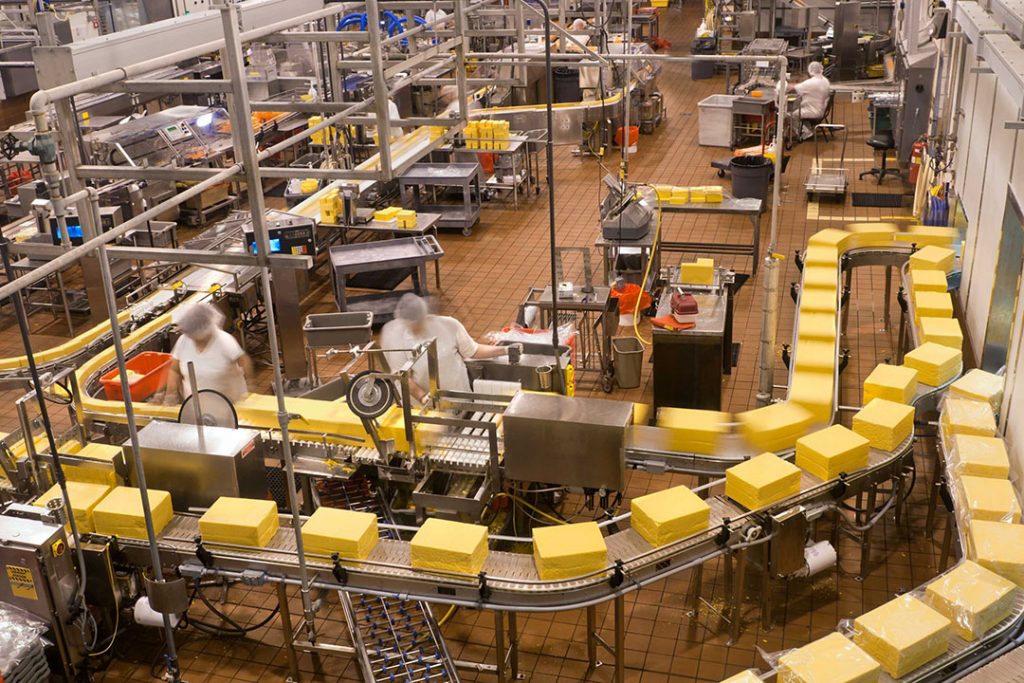Craxi artisan Gouda cheese in Málaga, Spain.

Artisan Gouda Cheese in Málaga.
Craxi artisan Gouda cheese is more than just a product; it is a labor of love. No factory production but a small-scale handmade cheese production on the cheese farm, where meticulous attention is paid to details. From using top quality milk (raw cow’s milk) to refining the ripening process.
Every step at the cheese farm is a conscious choice to guarantee a unique and special end product and to maintain a centuries-old tradition so that future generations can also enjoy the traditionally made Gouda cheese
There is Gouda cheese and Gouda farmer’s cheese Thé authentic Gouda!
Although the name ‘Gouda cheese’ is known all over the world, one thing is unknown to the general public when it comes to Gouda cheese: it is certainly not all the same!
Gouda cheese has its origins in the Netherlands and has been made there for centuries. The cheese owes its name to the city of Gouda, where the cheese was brought from the surrounding area to be traded on the Gouda cheese market.
Because the name Gouda cheese is not protected, Gouda is also made on a large scale in cheese factories worldwide with pasteurized milk. But good news for cheese lovers: artisanal Gouda cheese is still made on a small scale at cheese farms in the Netherlands.
Craxi artisan Gouda cheese.
On the Dutch cheese farm, all Gouda cheeses are prepared according to traditional methods and regulations. The milk used for the production of the artisan Gouda cheese has to come from the own herd. Gouda farmer’s cheese must be made from unpasteurized milk, also known as raw milk.
Craxi Gouda Farmer’s Cheese is a guaranteed traditional Dutch specialty. All Craxi Gouda cheeses available in our cheese shops in Málaga are still traditionally made with raw cow’s milk on the cheese farm in the Netherlands.

Where in Málaga is our artisan Gouda cheese available?
Our Craxi cheese shop locations.
- Mercado de Huelin, c/ La Hoz, 39 29002 Málaga, Craxi Queso, Stall 7-8
- Mercado de la Merced, c/ Merced, 4, 29012 Málaga, Craxi Queso, Stall 14


The opening hours of our cheese shop in the Mercado de Huelin and in the Mercado de la Merced.
| Artisan Gouda Cheese Shop | Mercado de Huelin | Mercado de la Merced |
| Monday | Closed | Closed |
| Tuesday | 9 a.m. to 2 p.m. | 10 a.m. to 3 p.m. |
| Wednesday | 9 a.m. to 2 p.m. | 10 a.m. to 3 p.m. |
| Thursday | 9 a.m. to 2 p.m. | 10 a.m. to 3 p.m. |
| Friday | 9 a.m. to 2 p.m. | 10 a.m. to 3 p.m. |
| Saturday | 9 a.m. to 2 p.m. | 10 a.m. to 3 p.m. |
| Sunday | Closed | Closed |
Below you will find the types of artisan Gouda cheese available in our cheese shops in Málaga.
The price list for our Craxi Gouda cheese natural and Craxi Gouda cheese with herbs.
Below our price list (incl. VAT) for Craxi Gouda cheese (natural) with a ripening period of 2, 4, 6, 8, 12, 24 and 36 months.
| Cheese Ripening Periods | Price per 1/2 kg | Price per 1 kg |
| Gouda aged for 2 months | € 8.95 | € 17.90 |
| Gouda aged for 4 months | € 9.60 | € 19.20 |
| Gouda aged for 6 months | € 10.20 | € 20.40 |
| Gouda aged for 8 months | € 10.80 | € 21.60 |
| Gouda aged for 12 months | € 11.70 | € 23.40 |
| Gouda aged for 24 months | € 14.20 | € 28.40 |
| Gouda aged for 36 months | € 14.80 | € 29.60 |
Craxi artisan Gouda cheese with aromatic herbs and spices.
The price list (incl. VAT) for our small handmade Gouda cheese wheels with herbs with an average weight of ±0.50 kg per cheese wheel.
| Cheese with Herbs | Weight Cheese Wheel | Price Per Cheese Wheel |
| Gouda with Cumin Seeds | ±0.50 kg | € 9.60 |
| Gouda with Black Summer Truffle | ±0.50 kg | € 11.75 |
| Gouda with Fenugreek Seeds | ±0.50 kg | € 9.60 |
| Gouda with Italian Herbs | ±0.50 kg | € 9.60 |
| Gouda with Garlic | ±0.50 kg | € 9.60 |
| Spicy Gouda with Chilies | ±0.50 kg | € 9.60 |
| Gouda with Green Pesto Herbs | ±0.50 kg | € 9.60 |
| Gouda with Red Pesto Herbs | ±0.50 kg | € 9.60 |
| Gouda with Iberian Herbs | ±0.50 kg | € 9.60 |
Artisan cheese or industrially produced cheese?

The milk used for the production of factory cheese is not daily fresh milk and comes from various suppliers in different qualities. In a cheese factory, different types of cheese are produced. Partly for this reason, it is necessary that this milk is standardised in terms of fat and protein composition.
Due to this standardisation, the taste of the cheese from the factory is almost always the same.
During the standardisation of the milk, the fat content is also reduced. Fat is an essential element for the development of the cheese’s flavour and aroma.
The milk is then subjected to a series of processes: centrifugation, thermisation, and bactofugation. The milk for the cheese factory is then pasteurised.
Factory cheese spends more time in the brine bath than artisan gouda cheese. As a result, factory cheese loses more moisture and becomes saltier. A normal factory cheese has a salt content of approximately 3.5%. A factory cheese with “25% less salt” has a salt content of approximately 2.5%. Artisan Gouda cheese has a salt content of approximately 2%.
Unsalted artisan Gouda Cheese for a Salt-free or Low-salt Diet.
If you follow a salt-free or low-salt diet, you can still enjoy a delicious cheese full of flavour. At the cheese farm in the Netherlands, we also make unsalted Craxi Gouda cheese in the traditional way. This cheese does not go through the brine bath and therefore does not absorb salt. As this unsalted cheese is made from raw milk, it still has a lot of flavour. Our salt-free Gouda is available in both of our cheese shops in Málaga
Can’t come to our Gouda cheese shops in Malaga? Then you can order our delicious Gouda cheeses quickly and easily online in our cheese webshop. Online cheese orders are always freshly cut and vacuum sealed on the day of shipment.
Our shipping days for online cheese orders destined for the Spanish mainland.
- Monday
- Tuesday
- Wednesday
If you have any questions, please contact us via the contact form on the website or use the WhatsApp button.
Find us on Facebook.
Craxi cheese shop in in the newspaper Málaga Hoy.
Latest News in Malaga, Costa del Sol – Sur in English Craxi cheese shop.